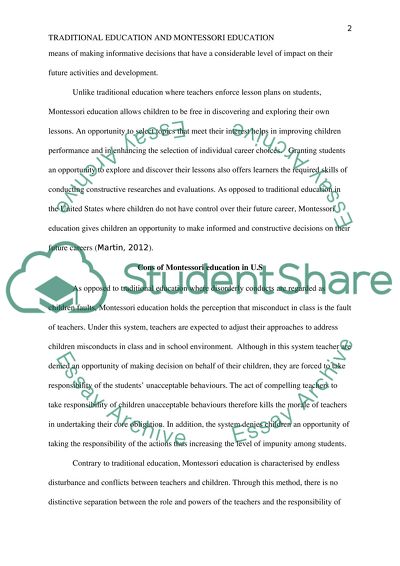Cite this document
(“Comparison Between Traditional Education and Montessori Education in Research Paper”, n.d.)
Comparison Between Traditional Education and Montessori Education in Research Paper. Retrieved from https://studentshare.org/education/1495428-comparison-between-traditional-education-and-montessori-education-in-us
Comparison Between Traditional Education and Montessori Education in Research Paper. Retrieved from https://studentshare.org/education/1495428-comparison-between-traditional-education-and-montessori-education-in-us
(Comparison Between Traditional Education and Montessori Education in Research Paper)
Comparison Between Traditional Education and Montessori Education in Research Paper. https://studentshare.org/education/1495428-comparison-between-traditional-education-and-montessori-education-in-us.
Comparison Between Traditional Education and Montessori Education in Research Paper. https://studentshare.org/education/1495428-comparison-between-traditional-education-and-montessori-education-in-us.
“Comparison Between Traditional Education and Montessori Education in Research Paper”, n.d. https://studentshare.org/education/1495428-comparison-between-traditional-education-and-montessori-education-in-us.


